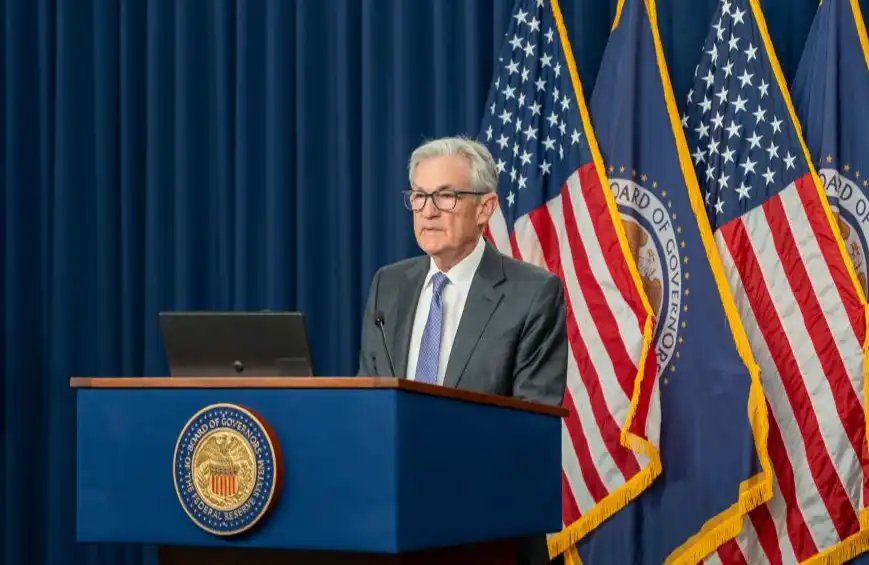Berkshire Hathaway's Deepening Commitment to Japanese Trading Houses: Strategic Positioning in a Stabilizing Asia-Pacific Market
- Berkshire Hathaway increased stakes in Japan's five major trading houses to 8.5%-9.8%, nearing 10% ownership thresholds. - The $23.5B market value (cost: $13.8B) reflects appreciation in diversified conglomerates with energy, tech, and logistics operations. - Japan's raised FDI targets and low-interest yen-denominated debt strategy support Berkshire's long-term positioning in Asia-Pacific supply chains. - Quantum computing partnerships and rare-earth collaborations highlight trading houses' role in resha
Berkshire Hathaway’s escalating investments in Japan’s five major trading houses—Itochu, Marubeni, Mitsubishi, Mitsui, and Sumitomo—represent more than a bet on undervalued assets. They signal a calculated strategic pivot to capitalize on the Asia-Pacific’s evolving dynamics, even as the region grapples with trade tensions and economic uncertainty. By March 2025, Berkshire’s stakes in these firms had surged to 8.5%–9.8%, with plans to potentially breach the 10% threshold after these companies agreed to relax ownership caps [1]. The market value of these holdings now stands at $23.5 billion, with a cost basis of $13.8 billion, reflecting both appreciation and the companies’ robust performance [2].
The rationale for this deepening commitment is rooted in the trading houses’ unique attributes. These conglomerates, often referred to as sogo shosha, operate across sectors including energy, commodities, logistics, and technology, mirroring Berkshire’s own diversified model [3]. Warren Buffett has praised their disciplined capital allocation, shareholder-friendly policies (such as consistent dividends and buybacks), and operational efficiency [4]. For instance, Mitsui’s partnership with Quantinuum to develop quantum computing applications in the Asia-Pacific underscores their innovation-driven approach, aligning with Berkshire’s long-term value-creation philosophy [5].
Japan’s economic policies further bolster this investment thesis. The government has raised its 2030 FDI target to 120 trillion yen (from 100 trillion yen) and aims for 150 trillion yen by the mid-2030s, part of a broader effort to attract foreign capital to decarbonization and regional development [6]. While Japan remains a relatively unattractive FDI destination compared to peers (ranking 196th in inward FDI as a percentage of GDP in 2023), its strategic location, technological leadership, and strong purchasing power offer compelling advantages [7]. Berkshire’s yen-denominated debt strategy—leveraging Japan’s low-interest environment to hedge currency risk—amplifies these benefits, generating a spread between equity returns and borrowing costs [8].
The Asia-Pacific’s mixed economic outlook adds nuance to this strategy. The IMF projects regional growth to slow to 3.9% in 2025, down from 4.6% in 2024, due to U.S. tariff announcements and global trade uncertainty [9]. Yet Japan’s domestic demand, supported by wage growth and its role in the AI supply chain, remains resilient [10]. Similarly, India’s structural tailwinds and proactive monetary easing suggest pockets of optimism. Berkshire’s focus on Japanese trading houses, which operate across these supply chains, positions it to benefit from both regional stability and diversification away from U.S.-centric risks.
Critically, these investments align with the trading houses’ own expansion into emerging sectors. For example, Japan’s collaboration with Australia and France to secure rare-earth metal supplies and its joint defense industry initiatives with the EU highlight their role in reshaping global supply chains [11]. Gunvor Group’s entry into Japan’s liberalized power market further illustrates the region’s growing influence in energy transitions [12]. By anchoring itself to these firms, Berkshire gains access to networks that span decarbonization, technology, and geopolitical realignments.
Warren Buffett’s emphasis on holding these stakes “for fifty years or forever” [13] underscores a belief in the enduring value of these partnerships. With price-to-book ratios below 1x and dividend yields outpacing U.S. peers, the trading houses offer a margin of safety in an uncertain world. For retail investors, too, Buffett’s moves have sparked a retail rally in Japan’s NISA tax-exempt accounts, signaling a broader validation of the strategy [14].
In a world where trade tensions and currency volatility dominate, Berkshire’s Japanese investments are not just about returns—they are about positioning for a future where Asia’s economic gravity continues to shift. As the trading houses deepen their regional and global footprints, Berkshire’s stakes may well prove to be a masterstroke in navigating the complexities of a stabilizing, yet fragmented, Asia-Pacific.
Source:
[1] Berkshire raises stakes in five Japanese trading houses to near 10%
[2] Why Berkshire Hathaway is Expanding Its Investments in Japan
[3] Buffett hikes stakes in five Japanese trading houses to almost 10% each
[4] Berkshire endorses Japanese trading houses, could hold them forever
[5] Strategic Partnership Agreement to Develop the Quantum Computing Market in Japan and Asia-Pacific
[6] Japan raises foreign direct investment target to $1 trillion by mid-2030s
[7] Japan Still 196th In Inward FDI
[8] Why Warren Buffett Likes the Japanese Trading Companies
[9] Regional Economic Outlook for Asia and Pacific, April 2025
[10] Asia Mid-year Outlook
[11] Weekly Japanese Industry and Policy News: 14 - 20 June, 2025
[12] Gunvor's Strategic Expansion into Asia-Pacific Power Markets
[13] Buffett Inspires Retail Investors to Bet on Japan Trading Houses
[14] The Opportunity and Challenge of Japan | Lipper Alpha Insight
Disclaimer: The content of this article solely reflects the author's opinion and does not represent the platform in any capacity. This article is not intended to serve as a reference for making investment decisions.
You may also like
The Federal Reserve cuts rates again but divisions deepen, next year's path may become more conservative
Although this rate cut was as expected, there was an unusual split within the Federal Reserve, and it hinted at a possible prolonged pause in the future. At the same time, the Fed is stabilizing year-end liquidity by purchasing short-term bonds.

Betting on LUNA: $1.8 billion is being wagered on Do Kwon's prison sentence
The surge in LUNA’s price and huge trading volume are not a result of fundamental recovery, but rather the market betting with real money on how long Do Kwon will be sentenced on the eve of his sentencing.

What is the overseas crypto community talking about today?
What have foreigners been most concerned about in the past 24 hours?

Behind the 15 million financing, does Surf aim to become an AI analyst in the crypto field?
Cyber co-founder starts a new venture.
